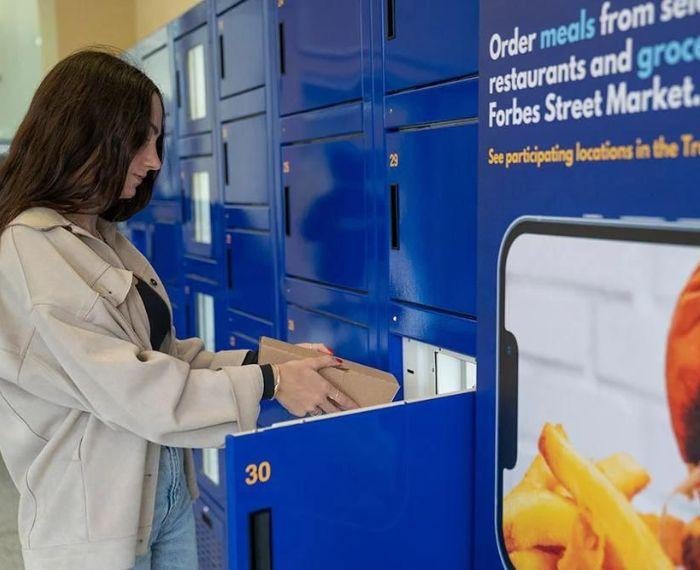
Subscribe to Pittwire Today
Get the most interesting and important stories from the University of Pittsburgh.The Pitt Pantry lockers won a national food waste reduction award

Pitt is the Food Waste Reduction winner in the National Wildlife Federation 2024 Campus Race to Zero Waste Case Study Competition. The University was recognized for its Pitt Pantry lockers, an innovative approach to minimizing food waste and addressing food insecurity on campus.
The award-winning initiative launched in fall 2023. With support from a Pennsylvania Hunger Free Campus grant, Pitt installed temperature-controlled lockers to distribute meals prepared with recovered food from the Eatery to food insecure students. Between November 2023 and April 2024, 86 students accessed more than 1,000 meals, diverting 1,023 pounds of food from landfills that would otherwise not be used.
The lockers build on the success of Food Recovery Heroes. Working with Pitt’s Business, Hospitality and Auxiliary Services division and dining provider Chartwells, the student organization has helped the University divert more than 200,000 pounds of surplus food from campus to local hunger-fighting agencies. Founded in 2015, the Pitt Pantry supports Pitt students and employees facing food insecurity.
In addition to supporting students facing food insecurity, the food lockers are used by the campus community for food and grocery pickup from Pitt Eats. This dual-purpose system ensures user confidentiality and helps reduce the stigma associated with receiving a free meal.
By providing free, nutritious meals, the lockers contribute to Pitt’s Sustainability Plan, which includes the goals of proactively meeting students' basic needs and reducing landfill waste 25% below 2017 levels by 2030. This initiative both addresses immediate food needs and reduces waste while supporting Pitt’s broader commitments to sustainability and student well-being.
Pitt’s case study is featured in the National Wildlife Federation’s “Learn from your peers” resource, serving as a model for other institutions aiming to implement similar programs.

